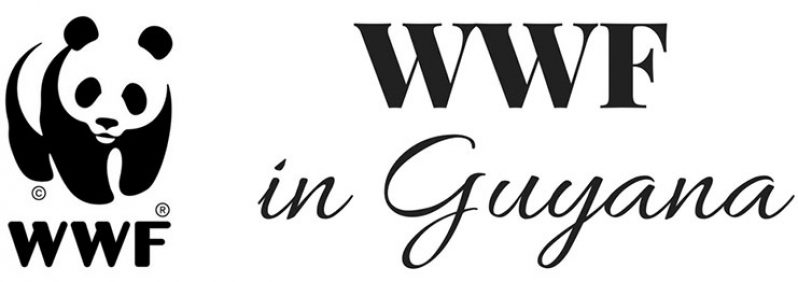– the case of the Shared Resources, Joint Solutions Programme
By the WWF Guianas Staff
Recent worldwide events show how civil society has played a critical role in effecting environmental change and conservation both at the international and national levels.
Through its work, WWF has been fostering civil society engagement at various levels, and in Guyana, civil society organizations even though still a small group, have shown continuous growth and expansion. Over the years there has been a shift from the traditional reactive nature of civil society organizations on issues to more proactive planning and coordination among like-minded groups, mobilizing around common themes and issues.
This often started with the purpose of creating awareness on topical issues, but soon become an effective way to address and demand policy level changes by central government, especially in the environment and conservation arena.
In the recent times, strong advocacy, mobilization and active participation of civil society groups, working together with the Government and the private sector, have been pivotal in processes related to the design and implementation of the Green Agenda.
These include the Guyana Norway Agreement (GNA), Guyana’s Intended Nationally Determined Contributions (INDC) to the United Nations Framework Convention on Climate Change (UNFCCC), Extractive Industries Transparency Initiative (EITI) and Guyana’s Green State Development Strategy.

Civil society also played a key role leading to the establishment and strengthening of the National Protected Areas System (NPAS) and the management planning process for national protected areas such as Kanakus Mountain Protected Area and Shell Beach Protected Area.
What emerges clearly through these domestic experiences, is that civil society organizations are able to lead and stimulate environmental changes and promote conservation mainly along the lines of information collection, analysis and dissemination; agenda-setting and policy development processes; direct project implementation allowing for model-building, capacity-building and exchanges of lessons and experiences; environmental monitoring and evaluation and advocacy.
These groups have greater interest – since all outcomes largely and directly impact them – to lobby for change and to be successful because of the nature of the institutions themselves, that is, these organizations tend to have space and flexibility to collaborate with diverse actors; wide network; raise funds to support its efforts and the capacity to implement specific demonstration projects/programmes.
Moreover their experience can also function as a testing opportunity to devise solutions and assess impacts in decision and policy making.
It is in this light that WWF has commenced the implementation of a new programme that revolves especially towards the empowerment and broader involvement of civil societies in decision making practices: the Shared Resources Joint Solutions (SRJS) programme in Guyana and Suriname for the Guiana Shield Eco-Region.
SRJS is a global programme implemented in sixteen (16) countries (low and lower middle income) across nine (9) eco-regions. It aims to safeguard the ecosystem-based International Public Goods (IPG) climate resilience, food and water security through the implementation of innovative, practical and workable joint solutions in collaboration with civil society groups undertaking a landscape management approach to safeguard and to sustainably manage critical landscapes that provide the most essential ecosystems services on which local communities and broader economic development depends.
The programme aims to strengthening and build capacity of civil society organizations at the local, regional and national scale to influence laws, policies, social norms and practices during programme implementation and to undertake this through a diverse stakeholder group of partners with the aim of securing ecosystem services of the IPGs.
The implementation of the SRJS programme across the Guiana Shield Eco-Region and specifically in Guyana, covers the southern regional landscape, the greenstone belt and the marine areas in both countries.
This should happen in collaboration with key CSO’s such as the North Rupununi District Development Board (NRDDB), South Central Peoples Development Association (SCPDA), Policy Forum Guyana, Fisheries Cooperatives and partnerships with the Department of Fisheries, Protected Areas Commission and in partnership with State bodies and the private sector.
A programme of activities revolving around conservation matters (forests, freshwater, marine and environmental management) and focusing on human wellbeing (food security, climate resilience, water provisioning) is already in the making, to increase the areas under conservation or sustainable management, reduce mercury use and strengthen environmental governance.
The programme commenced in 2016 and will end in 2020 and several engagements were held with key civil society groups in Guyana and Suriname to co-develop elements of the programme document and work plan to allow for co-ownership of programme projects, activities and results.
The core of the SRJS programme is in fact people based. It aims at sustaining a true and effective capacity building process, targeting civil society organizations to allow for their full participation; and to transform them in the protagonists and leaders in a process of green development and growth.



.jpg)









